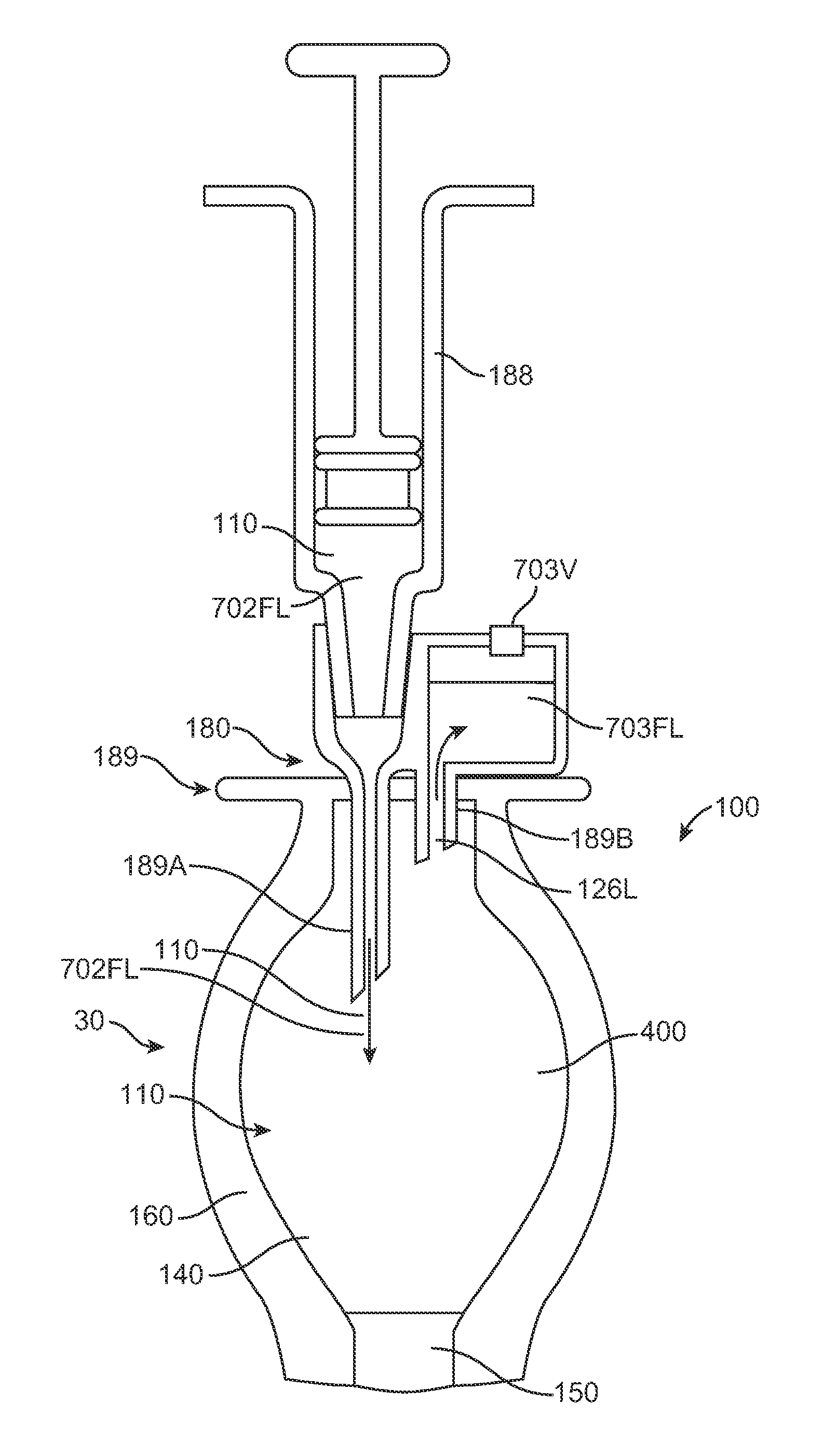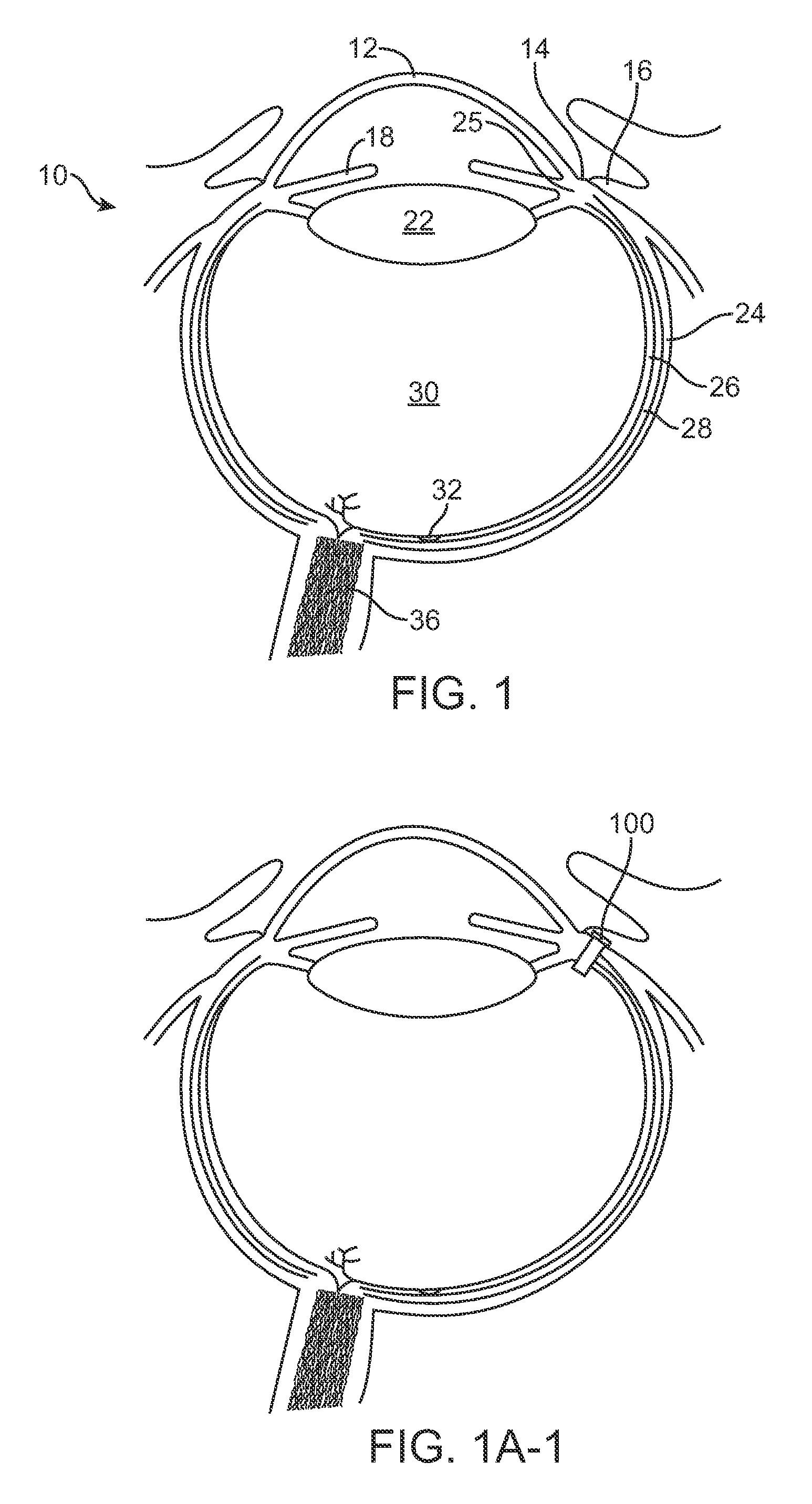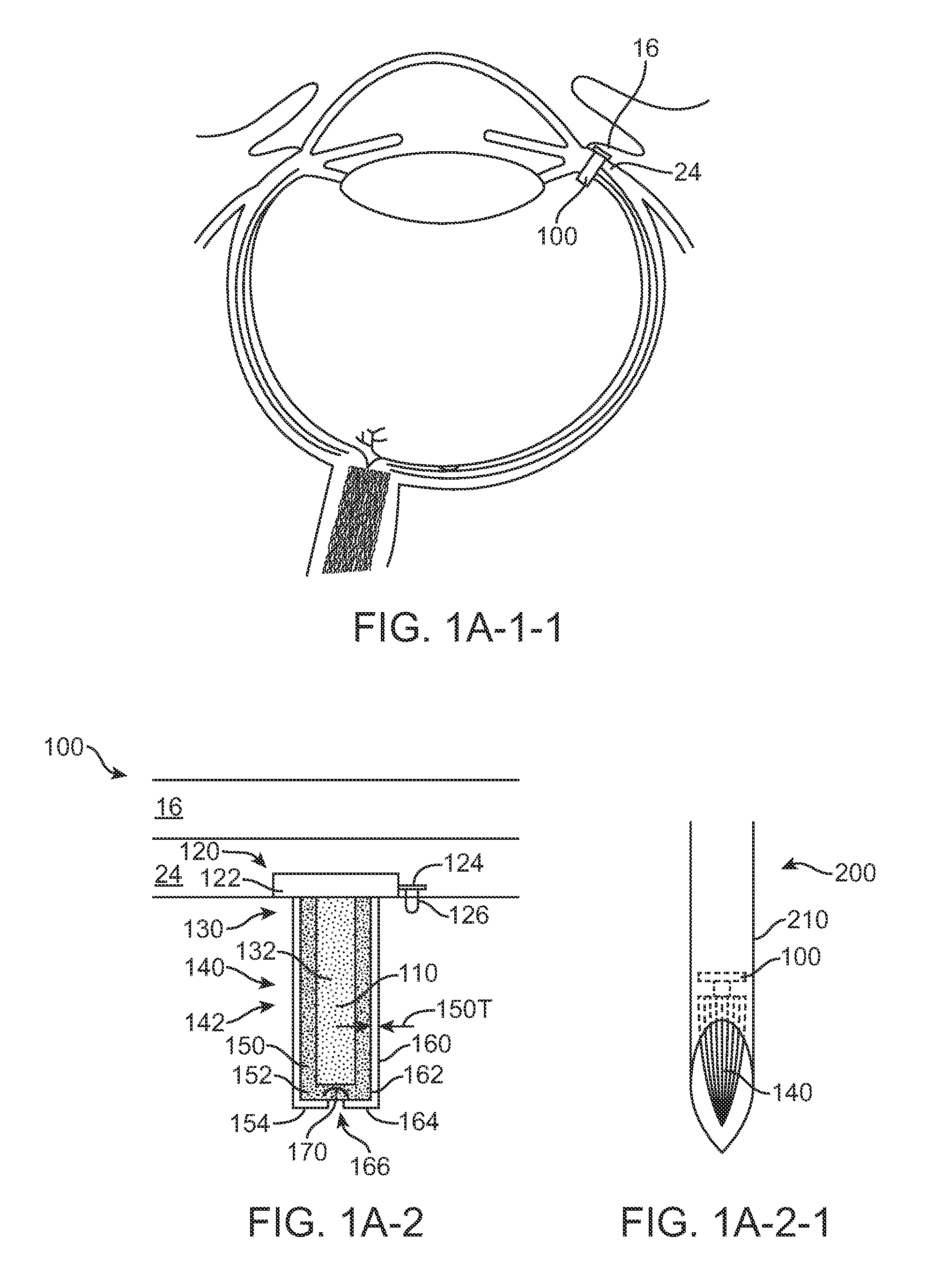Injector apparatus and method for drug delivery
a technology which is applied in the field of injectors and injectors, can solve the problems of poor patient comfort, limited penetration of eye drops into the external tissue of the eye, and prior methods and apparatus for treating eye diseases can be less than ideal, and achieve the effect of high resistance to flow
- Summary
- Abstract
- Description
- Claims
- Application Information
AI Technical Summary
Benefits of technology
Problems solved by technology
Method used
Image
Examples
experiment 1
Refill Efficiency Studies with Fluids Having Different Densities
[0506]Trehalose buffer was prepared containing 10 wt % trehalose (Fisher), 0.01 wt %% polysorbate 20 (Fisher) and 10 mM histidine HCl (Spectrum). The pH was adjusted to 7.6 using sodium hydroxide. Fluorescein sodium (AngioFluor) was added to a final concentration of 2.5 wt %. Phosphate buffered saline (hereinafter “PBS”, Sigma) was prepared in HPLC grade water and an aliquot of this had fluorescein added to reach a final concentration of 2.5 wt %. Density measurements were made at 23° C. gravimetrically using a 10 mL Class A volumetric flask and an analytical balance measuring to 0.01 mg.
[0507]This study used devices with 25 uL reservoir volume and titanium porous structures that produce drug release profiles corresponding to a Release Rate Index of 0.02 mm. Devices were initially filled with 25 uL of PBS using a 1 cc tuberculin syringe (BD) and a 33 G needle (TSK). The distal end of the filled devices was inserted into...
experiment 2
Video Imaging and Efficiency Studies
[0513]Video imaging studies with a marker dye were conducted to identify the at least partial separation as described herein.
[0514]The exchange needle comprised a coaxial needle system in accordance with the embodiments of FIGS. 7-1 and 7-2, and having an internal needle of 33½ gauge and an outer tube of 0.018″ inner diameter. The length of the inner needle was within a range from about 0.15 to about 0.25″ long. The length of the outer tube used in the study was within a range from about 0.04″ to about 0.09″ long so as to provide a majority of the resistance to flow along the vent fluid path.
[0515]FIGS. 15A-1 to 15A-3 show the therapeutic device in an angle up position (10 degrees up off the horizontal, porous structure above penetrable barrier). The concentric needle and vent of the injector apparatus was constructed in accordance with the apparatus shown in FIGS. 7-1 and 7-2 as described herein. The injector apparatus injected denser liquid thro...
experiment 4
Refill Efficiency and Density
Experiments 4-1 to 4-3
[0523]Additional studies were conducted to determine refill efficiency with the porous structure above or below the injection port. The substantially rigid implantable devices comprised a reservoir volume of 25 uL and were filled initially with PBS having a density of approximately 1.00, as described in Experiment 1. These devices were injected with 45 uL of fluid to determine the efficiency of the injection based on the amount of injected liquid in the reservoir chamber implantable device upon completion of the injection. As used in these studies, device up refers to the porous structure located above the penetrable barrier of the injection port. Experiments 4-1 to 4-2 used a single approximately 33 Gauge needle extending into the device and Experiment 4-3 used an exchange apparatus comprising a needle and a vent placed within the chamber of the device as shown in FIGS. 7-1 and 7-2. The injected solution was at least about 3% dense...
PUM
 Login to View More
Login to View More Abstract
Description
Claims
Application Information
 Login to View More
Login to View More - R&D
- Intellectual Property
- Life Sciences
- Materials
- Tech Scout
- Unparalleled Data Quality
- Higher Quality Content
- 60% Fewer Hallucinations
Browse by: Latest US Patents, China's latest patents, Technical Efficacy Thesaurus, Application Domain, Technology Topic, Popular Technical Reports.
© 2025 PatSnap. All rights reserved.Legal|Privacy policy|Modern Slavery Act Transparency Statement|Sitemap|About US| Contact US: help@patsnap.com



